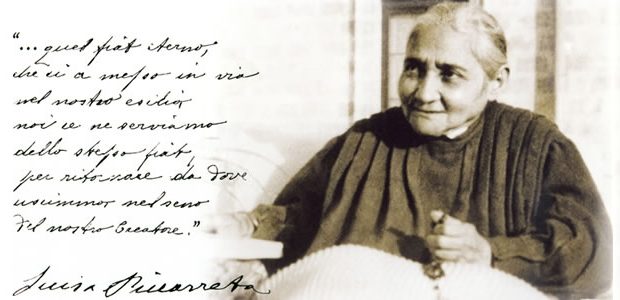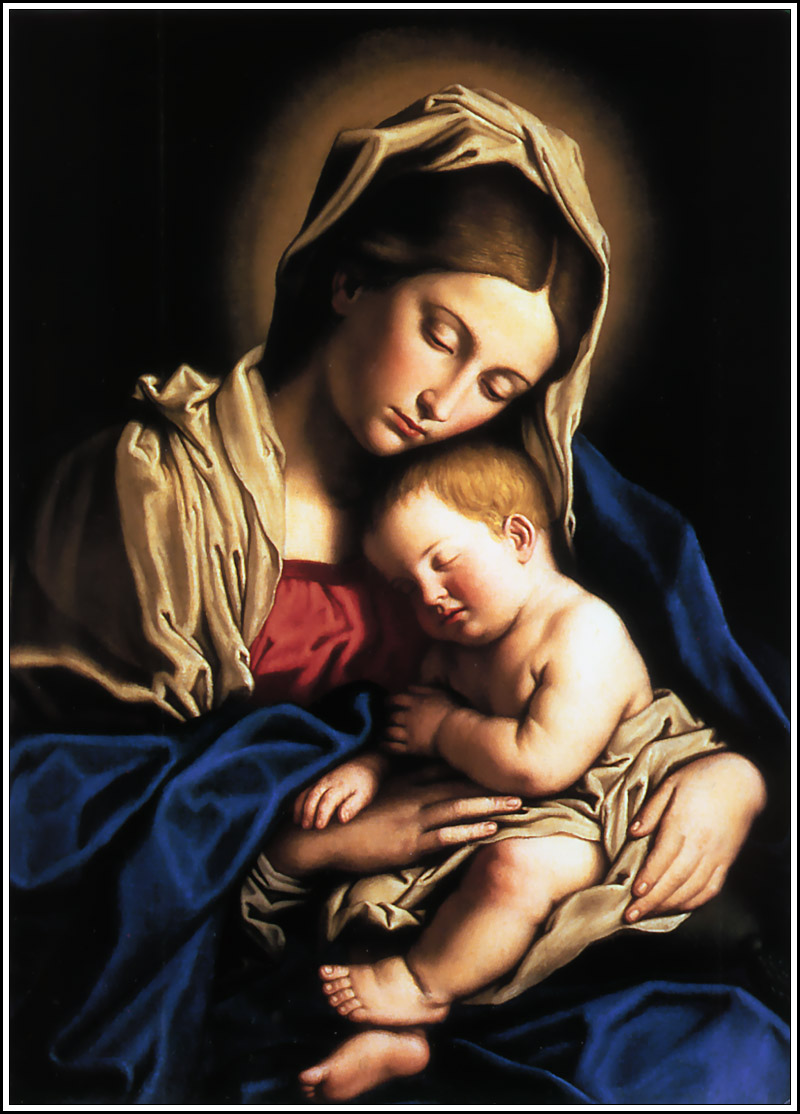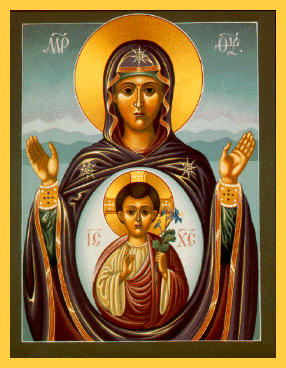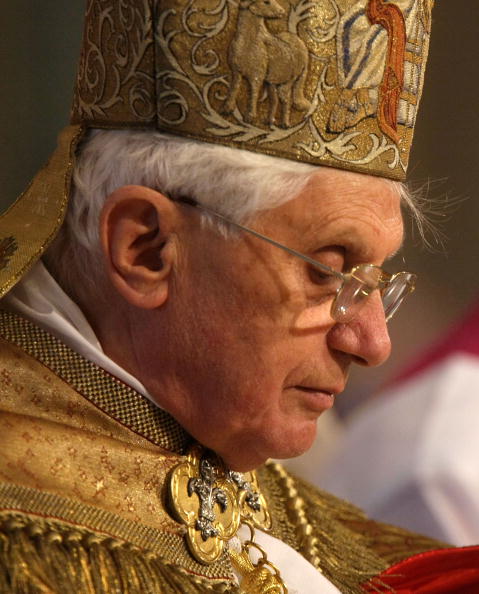Advent and God’s benevolent plan
Marking the first week of Advent and the beginning of the new liturgical year, Pope Benedict XVI dedicated his general audience catechesis to living the season as an act of faith in God’s benevolent plan for humanity.
Below a Vatican Radio translation of the Holy Father’s catechesis
Dear Brothers and Sisters,
At the beginning of his letter to the Christians of Ephesus (cf. 1, 3-14), the apostle Paul raises a prayer of blessing God, the Father of our Lord Jesus Christ – a prayer that we have just heard – that introduces us to live the season of Advent, in the context of the faith. The theme of this hymn of praise is God’s plan for man, defined in terms full of joy, wonder and gratitude, as a “benevolent plan” (see 9), mercy and love.
Why does the Apostle raise this blessing God, from the depths of his heart? Because he looks at his work in the history of salvation, culminating in the incarnation, death and resurrection of Jesus, and he contemplates how Heavenly Father has chosen us even before the creation of the world, to be his sons in his only-begotten Son, Jesus Christ (cf. Rom 8:14 s.; Gal 4:4 f.). Therefore we exist from eternity in God, in a major project that God has kept within himself and decided to implement and to reveal in “the fullness of time” (cf. Eph 1:10). St. Paul helps us to understand, then, how all creation and, in particular, man and woman are not the result of chance, but a loving plan to respond to the eternal reason of God with the creative and redemptive power of his Word which creates the world. This first statement reminds us that our vocation is not simply to exist in the world, being inserted in history, or even just being a creature of God, it is something greater: it is being chosen by God, even before the creation of the world, in the Son, Jesus Christ. In Him we exist, so to speak, already. God contemplates us in Christ, as adopted children. The “benevolent plan” of God, which is qualified by the Apostle as a “loving plan” (Eph 1:5), is called “the mystery” of Divine will (v. 9), hidden and now revealed in the Person and work of Christ. The divine initiative precedes any human response: it is a free gift of His love that surrounds us and transforms us.
But what is the ultimate goal of this mysterious plan? What is the centre of God’s will? It is – Saint Paul tells us – to “bring all things back to Christ, the only head” (v. 10). In this expression we find one of the central formulations of the New Testament that make us understand the plan of God, his plan of love for humanity, a formulation in the second century, St. Irenaeus of Lyons placed at the core of his Christology : “to restore ” all reality in Christ. Perhaps some of you remember the formula used by Pope St. Pius X for the consecration of the world to the Sacred Heart of Jesus: “Instaurare omnia in Christo“, a formula that refers to this Pauline expression, and that was also the motto of this holy Pontiff . The Apostle, however, speaks more specifically of restoring the universe in Christ, and this means that in the great design of creation and history, Christ stands as the center of the entire journey of the world, the central pillar, that attracts the whole of reality to itself, to overcome dispersion and limitation and lead everything to the fullness desired by God (cf. Eph 1:23).
This “benevolent plan” has not been kept, so to speak, in the silence of God in the height of his heaven, but He has made it known by engaging with the man, to whom He has not only revealed something, but His very self. He has not  simply communicated a set of truths, but He communicated Himself to us, to the point of becoming one of us, to being incarnate. The Second Vatican Council in its Dogmatic Constitution Dei Verbum affirms: ” In His goodness and wisdom God chose to reveal Himself and to make known to us the hidden purpose of His will (see Eph. 1:9) by which through Christ, the Word made flesh, man might in the Holy Spirit have access to the Father and come to share in the divine nature “(n. 2). God not only says something, He communicates with us, draws us into the divine nature, so that we are involved in the divine nature, deified. God reveals His great plan of love engaging with man approaching him to the point of becoming himself is a man. The Council continues: “The invisible God out of the abundance of His love speaks to men as friends (see Ex. 33:11; John 15:14-15) and lives among them (see Bar. 3:38), so that He may invite and take them into fellowship with Himself “(ibid.). By his intelligence and abilities alone man could not have reached this illuminating revelation of God’s love, it is God who has opened up His heaven and lowered himself to lead man into the abyss of his love.
simply communicated a set of truths, but He communicated Himself to us, to the point of becoming one of us, to being incarnate. The Second Vatican Council in its Dogmatic Constitution Dei Verbum affirms: ” In His goodness and wisdom God chose to reveal Himself and to make known to us the hidden purpose of His will (see Eph. 1:9) by which through Christ, the Word made flesh, man might in the Holy Spirit have access to the Father and come to share in the divine nature “(n. 2). God not only says something, He communicates with us, draws us into the divine nature, so that we are involved in the divine nature, deified. God reveals His great plan of love engaging with man approaching him to the point of becoming himself is a man. The Council continues: “The invisible God out of the abundance of His love speaks to men as friends (see Ex. 33:11; John 15:14-15) and lives among them (see Bar. 3:38), so that He may invite and take them into fellowship with Himself “(ibid.). By his intelligence and abilities alone man could not have reached this illuminating revelation of God’s love, it is God who has opened up His heaven and lowered himself to lead man into the abyss of his love.
As St. Paul writes to the Christians of Corinth: “What eye has not seen, and ear has not heard, and what has not entered the human heart, what God has prepared for those who love him,” this God has revealed to us through the Spirit.For the Spirit scrutinizes everything, even the depths of God”(2:9-10). And St. John Chrysostom, in a famous comment on the beginning of the Letter to the Ephesians, invites us to enjoy all the beauty of this “benevolent plan” of God revealed in Christ, and St. John Chrysostom says: ” What are you lacking? You have become immortal, you have become free, you have become a child, you have become righteous, you are a brother, you have become a joint heir, to reign with Christ, with Christ you are glorified. Everything is given to us, and – as it is written – “how will he not also give us everything else along with him?” (Rom 8:32). Your firstfruits (cf. 1 Cor 15,20.23) is adored by angels […]: what do you miss? “(PG 62.11).
This communion in Christ through the Holy Spirit, offered by God to all men with the light of Revelation, is not something that overlaps with our humanity, but it is the fulfilment of the deepest human longings, of the desire for infinity and fullness that dwells in the depths of the human being, and opens it up not to a temporary and limited happiness, but eternal. St. Bonaventure, referring to God who reveals Himself and speaks to us through Scripture to lead us to Him, says this: “Sacred Scripture is […] the book in which the words of eternal life are written so that not only we believe, but may also possess eternal life, in which we shall see, we shall love and all our wishes shall be realized “(Breviloquium, Ext., Opera Omnia V, 201S.). And finally, Blessed Pope John Paul II recalled also that – and I quote – ” Revelation has set within history a point of reference which cannot be ignored if the mystery of human life is to be known. Yet this knowledge refers back constantly to the mystery of God which the human mind cannot exhaust but can only receive and embrace in faith “(Encyclical Fides et Ratio, 14).
In this perspective, what is then, the act of faith? It is man’s response to God’s Revelation, which is made known, which shows His loving plan for humanity, and is, to use an expression of St. Augustine, allowing ourselves be grasped by the truth that is God, a truth that is love . This is why St. Paul emphasizes that we owe God, who has revealed His mystery, “obedience of faith” (Rom 16:26; see 1.5, 2 Cor 10: 5-6), the attitude with which man commits his whole self freely to God, offering the full submission of intellect and will to God who reveals, and freely assenting to the truth revealed by Him” (Dei Verbum, 5). Obedience is not an act of coercion, it letting go, surrendering to the ocean of God’s goodness All this leads to a fundamental change in the way we deal with the whole of reality, everything appears in a new light, it is therefore a true “conversion,” faith is a “change of mentality” because the God who has revealed Himself in Christ, and has made known His plan, seizes us, draws us to Himself, becomes the meaning that supports life, the rock on which it can find stability. In the Old Testament we find an intense expression on faith, which God entrusts the prophet Isaiah to communicate to the king of Judah, Ahaz. God says: “Unless your faith is firm you shall not be firm” (Is 7.9 b). There is therefore a link between being and understanding that expresses how faith is a welcoming into our lives God’s vision of reality, letting God guide us through His Word and Sacraments to understand what we must do, the path we must take, how to live. At the same time, however, it is precisely understanding according to God, seeing with His eyes that makes our lives more solid, which allows us to “stand”, not to fall.
Dear friends, Advent, the liturgical season that we have just begun and that prepares us for Christmas, places us before a the luminous mystery of the coming of the Son of God, the great “Benevolent Plan” with which he wants to draw us to Himself, to help us live in full communion of joy and peace with Him Advent invites us once again, in the midst of many difficulties, to renew our awareness that God is present: He came into the world, becoming a man like us , to bring His plan of love to fullness. And God demands that we become a sign of his action in the world. Through our faith, our hope, our love, He wants to enter the world again and again He wants to shine His light in our night. Thank you.




